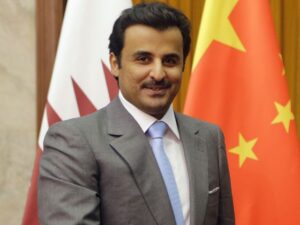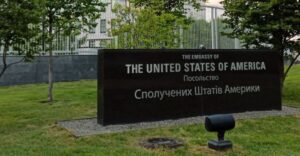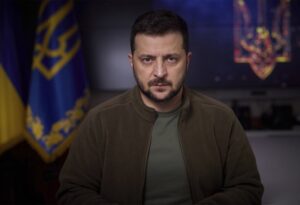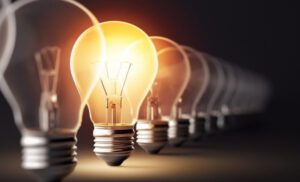
President of Ukraine Volodymyr Zelensky discussed with Emir of Qatar Tamim bin Hamad Al Thani further joint steps at the UN and other international platforms.
“I had a conversation with the Emir of Qatar, Sheikh Tamim bin Hamad Al Thani. He thanked for the strong support for the sovereignty and territorial integrity of Ukraine. We discussed further joint steps at the UN and other international platforms,” Zelensky wrote on Twitter.

The US Embassy in Kyiv called on American citizens to leave Ukraine in connection with Russian strikes on civilian infrastructure.
“Continued Russian strikes on Ukraine pose a direct threat to civilians and civilian infrastructure. The Embassy urges US citizens to take shelter in place and leave Ukraine now using private ground transportation options when it is safe to do so,” the embassy said on Twitter.

President of Ukraine Volodymyr Zelensky said that he had agreed with German Federal Chancellor Olaf Scholz on the urgent convening of the G7 group.
“Agreed with Olaf Scholz, Chancellor of Germany, presiding over the G7, to convene an urgent meeting of the group. My speech is planned, in which I will talk about the terrorist attacks of the Russian Federation. We also discussed increasing pressure on Russia and helping to rebuild damaged infrastructure,” he tweeted on Monday.
Number of dwellings in residential buildings, putting into service, by type by region in Jan-June 2022

graphics of the Club of Experts

In the Kyiv region, air defense shot down 6 missiles, but there is a hit in a thermal power plant, Deputy Head of the President’s Office Kyrylo Tymoshenko wrote on a telegram channel.
“Under the gun are power facilities from Lviv to Zaporozhye, Kiev region, Khmelnytsky, Dnipro and Vinnytsia, Frankivsk, Sumy, Kharkiv, Zhytormyr, Kirovohrad regions, in general, the entire south. This may affect the stability of the energy supply, so you need to be prepared for the consequences of such shelling, up to rolling blackouts,” he wrote.
For example, Tymoshenko noted, “only in the Kyiv region, air defense shot down six missiles, but there is a hit in a thermal power plant. The specialized services are making every effort to eliminate the consequences of shelling as quickly as possible. There is no rocket that will make us leave”

Minister of Education and Science Serhiy Shkarlet instructed local authorities to make a decision on distance learning by the end of this week.
“Dear teachers, pupils, parents, students! Today, the enemy again dealt crushing blows to parts of the regions and the capital. I appeal to the leaders of the OVA and heads of educational institutions! Our task is to protect all participants in the educational process as much as possible. Therefore, I ask you to make a decision to study in a remote format until the end of the current week (until 10/14/2022),” Shkarlet wrote in the Telegram channel.
The minister emphasized that safety is above all.
“Please do not neglect the rules of conduct during the air raid signal, go down to the shelter. Take care of yourself,” he summed up.